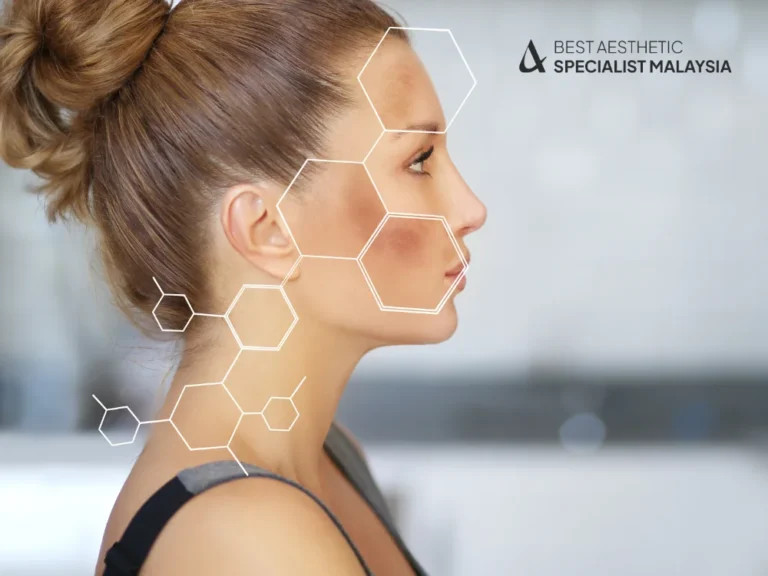Hyperpigmentation, a common skin condition, manifests as darkened patches or spots on the skin. It often arises due to an overproduction of melanin, the pigment responsible for skin color. While not typically harmful, hyperpigmentation can affect one’s confidence and appearance. Thankfully, advancements in skincare and lifestyle adjustments offer effective strategies to manage and reduce this concern.
This article delves into proven methods to treat hyperpigmentation, preventive measures, and the science behind its causes, ensuring you have a comprehensive guide for healthier, even-toned skin.
Understanding Hyperpigmentation
What Causes Hyperpigmentation?
Hyperpigmentation results from several factors:
- Sun Exposure: Excessive UV radiation triggers melanin production, leading to sunspots.
- Hormonal Changes: Conditions like melasma often develop during pregnancy or with hormonal therapies.
- Skin Inflammation: Acne scars, injuries, or eczema can result in post-inflammatory hyperpigmentation (PIH).
- Medications: Certain drugs, including antibiotics and chemotherapy agents, may cause skin discoloration.
Types of Hyperpigmentation
There are three primary types of hyperpigmentation:
- Melasma: Hormonal and usually symmetrical, appearing on cheeks, forehead, or chin.
- Sunspots (Solar Lentigines): Resulting from prolonged sun exposure, commonly on exposed areas like hands and face.
- Post-Inflammatory Hyperpigmentation (PIH): Dark marks following acne, burns, or injuries.
Top Treatments for Hyperpigmentation
1. Sunscreen Is Non-Negotiable
Daily sunscreen use is the cornerstone of preventing and treating hyperpigmentation. Look for broad-spectrum products with SPF 30 or higher, and ensure it offers protection against UVA and UVB rays.
2. Over-the-Counter (OTC) Products
Active ingredients such as:
- Vitamin C: Fights free radicals and brightens dark spots.
- Niacinamide: Reduces melanin transfer to skin cells.
- Alpha Arbutin: Inhibits tyrosinase, an enzyme involved in melanin production.
3. Prescription Medications
For severe cases, dermatologists might recommend:
- Hydroquinone: A potent melanin inhibitor (often prescribed for short-term use).
- Tretinoin: Accelerates cell turnover, fading dark spots.
4. Chemical Peels
Peels containing glycolic acid, lactic acid, or salicylic acid exfoliate the skin, removing pigmented layers and promoting new skin growth.
5. Laser Treatments
Targeted laser therapies, such as Q-switched lasers, focus on affected areas to break down pigmentation. These treatments require professional supervision for optimal results.
Natural Remedies for Hyperpigmentation
6. Aloe Vera
Aloe vera contains aloin, a compound shown to reduce pigmentation. Apply fresh gel to dark spots overnight for gradual results.
7. Green Tea Extract
Rich in antioxidants, green tea can help reduce pigmentation caused by sun damage when applied topically.
8. Licorice Root
This natural ingredient inhibits melanin production and reduces inflammation, making it an effective remedy for melasma.
Lifestyle Tips to Prevent Hyperpigmentation
9. Avoid Prolonged Sun Exposure
Wear protective clothing, hats, and sunglasses when outdoors. UV exposure exacerbates pigmentation, even on cloudy days.
10. Avoid Picking at Your Skin
Scratching or popping pimples increases the risk of PIH. Adopt a gentle skincare routine to manage acne without causing damage.
How Long Does It Take to See Results?
The journey to clearer, more even skin tone is a gradual process. The timeline for noticeable results in hyperpigmentation treatment can vary significantly, depending on several factors:
Treatment Type:
- Over-the-counter (OTC) Products: These products, such as hydroquinone creams or vitamin C serums, typically require consistent use for several weeks or even months to see significant improvement.
- In-Office Procedures: Procedures like chemical peels, laser treatments, and microdermabrasion often yield faster results, with noticeable changes appearing within a few weeks. However, multiple sessions may be necessary for optimal outcomes.
Skin Type:
- Lighter Skin Tones: Individuals with lighter skin tones may experience quicker results, as their skin is generally more responsive to treatment.
- Darker Skin Tones: Darker skin tones tend to be more sensitive and prone to post-inflammatory hyperpigmentation (PIH). While effective treatments are available, it may take longer to see results and minimize the risk of complications.
Consistency is Key:
To maximize the effectiveness of your treatment plan, it’s crucial to adhere to a consistent skincare routine:
- Product Usage: Use your prescribed products as directed by your dermatologist.
- Sun Protection: Shield your skin from harmful UV rays by wearing broad-spectrum sunscreen with an SPF of 30 or higher daily.
- Patience: Remember that hyperpigmentation is a chronic condition. While you may see improvements over time, it’s essential to maintain a patient and realistic approach.
By combining effective treatments with consistent skincare practices, you can gradually lighten hyperpigmentation and achieve a more even skin tone.
FAQs About Hyperpigmentation
1. Can hyperpigmentation be cured permanently?
While it can be significantly reduced, certain types like melasma may recur, especially without proper sun protection.
2. Is hyperpigmentation harmful?
Hyperpigmentation is usually harmless but may indicate underlying issues like hormonal imbalances or skin injuries.
3. Are natural remedies as effective as medical treatments?
Natural remedies like aloe vera and licorice root are mild and require time to show results. They may work for mild pigmentation but are less effective for severe cases.
4. Can diet influence hyperpigmentation?
A diet rich in antioxidants (found in fruits, vegetables, and nuts) may help improve skin health and reduce pigmentation over time.
5. Does makeup worsen hyperpigmentation?
Using non-comedogenic and SPF-infused makeup is safe. However, removing makeup thoroughly prevents clogged pores and PIH.
6. How do I choose the right skincare products?
Opt for dermatologist-recommended products with proven ingredients like niacinamide, retinol, or kojic acid for targeted results.
Conclusion
Hyperpigmentation, while a common skin concern, is a condition that can be effectively managed with the right approach. By understanding the underlying causes, whether they be sun damage, hormonal fluctuations, or inflammation, individuals can tailor their skincare routine accordingly.
Medical treatments such as hydroquinone, retinoids, and chemical peels offer targeted solutions for reducing hyperpigmentation. However, it’s important to consult with a dermatologist to determine the most suitable treatment plan.
Natural remedies like vitamin C serums, licorice root extract, and azelaic acid can also help lighten dark spots. These ingredients work by inhibiting melanin production and promoting cell turnover.
Preventive measures, such as consistent sunscreen use, avoiding excessive sun exposure, and gentle skincare practices, are crucial for maintaining clear and even-toned skin. By incorporating these strategies into daily life, individuals can minimize the risk of future hyperpigmentation and enjoy a radiant complexion.






